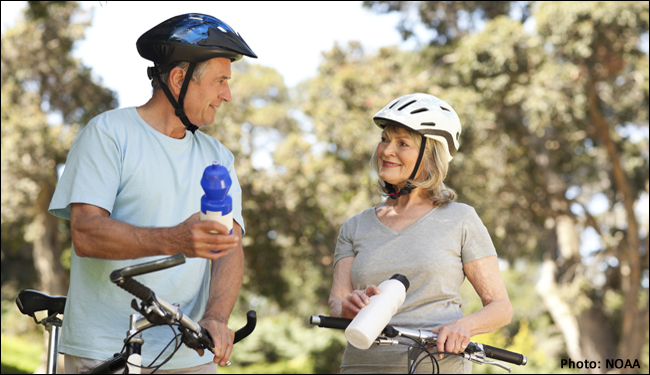
Visit this valuable National Weather Service webpage for more safety tips during a heat wave: https://www.weather.gov/safety/heat .
Danelle in Tennessee was mowing her lawn on a riding mower and thought she was doing everything right: five-minute breaks, sipping water, cooling down. She wanted to finish so she ignored the lack of sweat and some cramping in her arms.
She went inside, took a shower, got dizzy, passed out, and busted her head open. Next stop: the emergency room.
Heat kills by pushing the human body beyond its limits. In extreme heat and high humidity (which is when the air has moisture and feels sticky), the body must work extra hard to maintain a normal temperature and keep the body comfortable. A heat wave is an extended period of extreme heat, and there is often high humidity. These conditions can be dangerous for people who don’t take care of themselves properly.
Sickness can occur if someone has been in extreme heat for too long or has over-exercised for his or her age or physical condition. Extreme heat can be more dangerous for older people, the very young, and people who are sick or overweight. People who live in cities can be at greater risk because concrete and asphalt store heat for longer and release it throughout the night, so nights don’t get as cool as in areas with less concrete.
It is NEVER safe to leave a toddler, disabled person or pet locked in a car, even in the winter. If you have a toddler in your household, lock your cars, even in your own driveway. Kids plays in cars and can get locked in. Already 21 young children have died in hot cars in 2019! Cars can heat up quickly when left in the sun. Find out more.
North American summers are hot. Sometimes spring and fall temperatures reach dangerous levels as well. Most summers see heat waves in one or more parts of the United States. Heat is one of the leading weather-related killers in the United States, resulting in hundreds of fatalities each year and even more heat-related illnesses. In addition to the resources below, OSHA offers a free OSHA Heat Safety App for both Android and iPhone.
- Never sit in a parked car or leave pets in a parked car.
- Stay inside an air-conditioned area as much as possible.
- Play indoor games and sports.
- Drink lots of water. This is your body’s air conditioning!
- Wear loose-fitting clothes in light colors.
- Did you know dark colors absorb the sun’s rays?
- Wear a hat with a wide brim to protect your face and head.
- Spend time in local places with air conditioning.
Topics in this story
More Stories
The 2024 National Veteran Suicide Prevention Annual Report provides the foundation for VA’s suicide prevention programs and initiatives.
Theranostics is a specialized field of nuclear medicine that uses a two-pronged approach to diagnose and treat cancer.
Air Force Veteran Shireta Jones overcomes obstacles with support from VA and adaptive devices to continue her passion for pickleball.

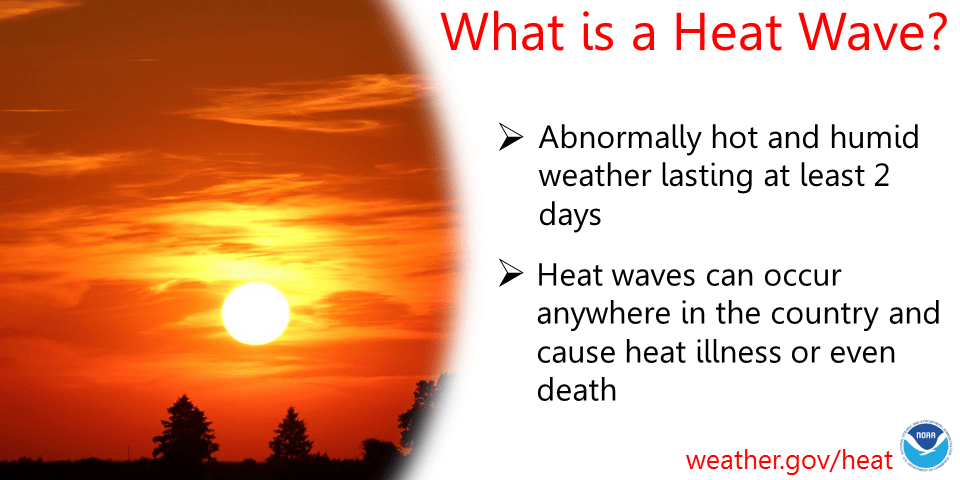
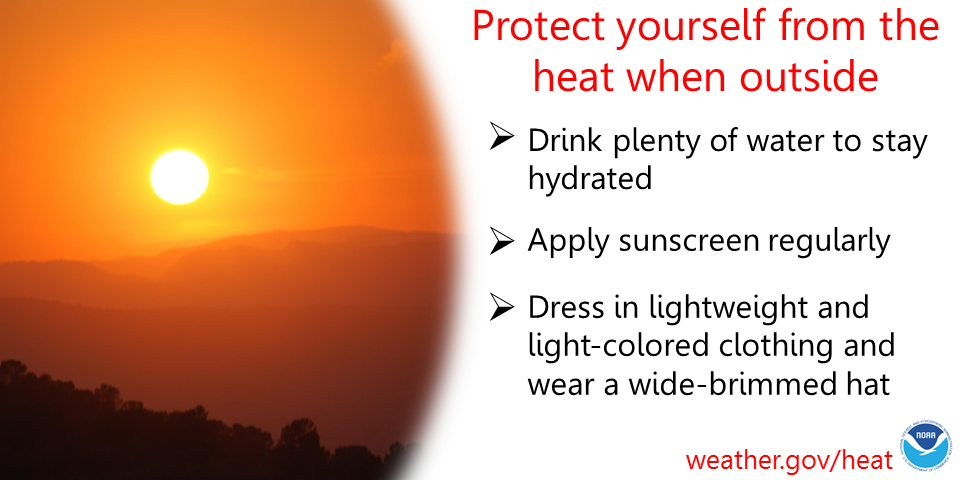
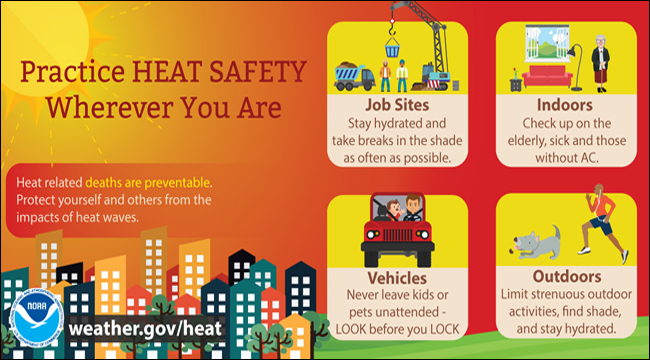


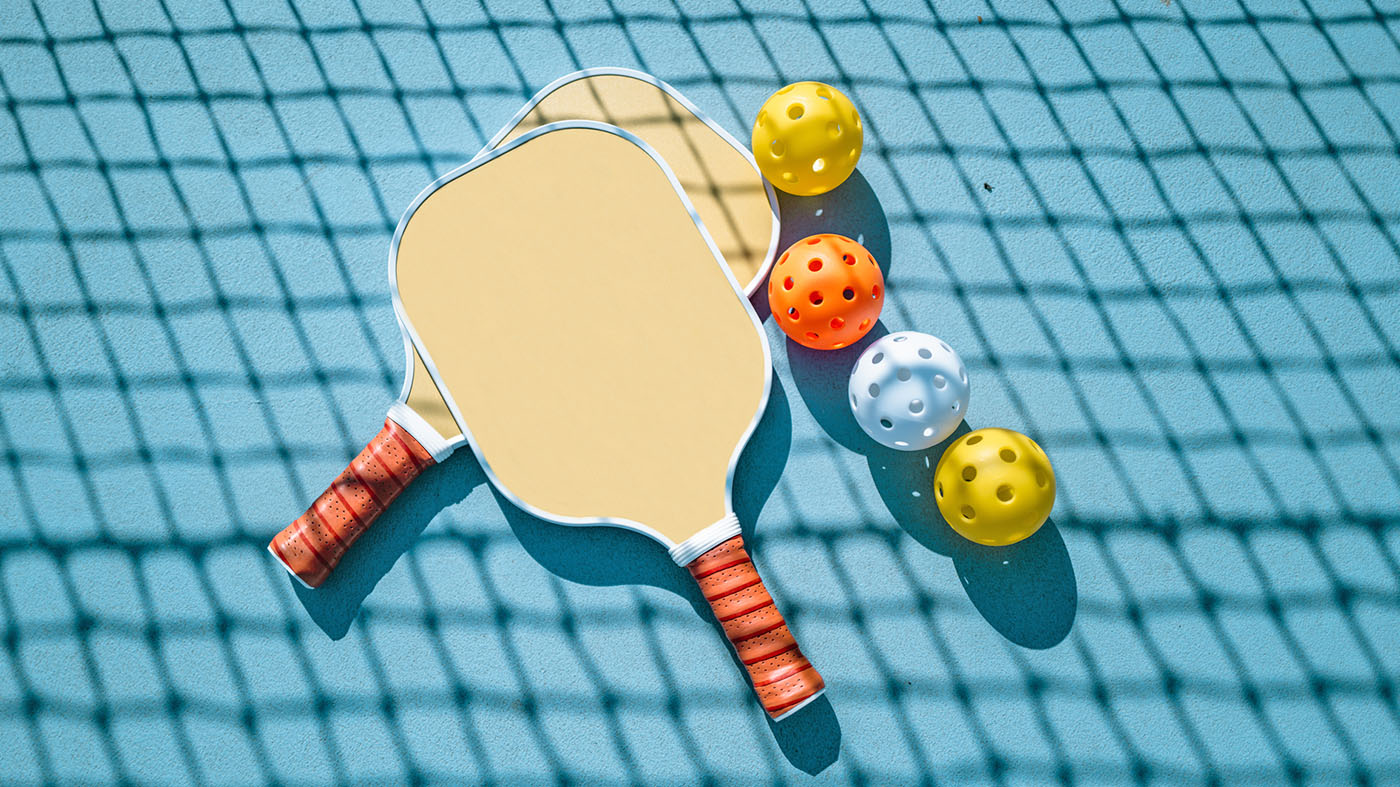


Great Tips for Veterans and their families … and everybody!
Eat foods that keep your body hydrated and wear lightweight clothes. Wear sunscreen whenever you go outside.
Stay hydrated stay alive! Drink plenty of fluids and take breaks when doing yard work.
Last summer it was 35 degree Celcius in Sweden. I took the kids to the beach. The water and the wind made them happy. Also, during a heatwave, it is good to consume food that consists of water such as cucumbers.